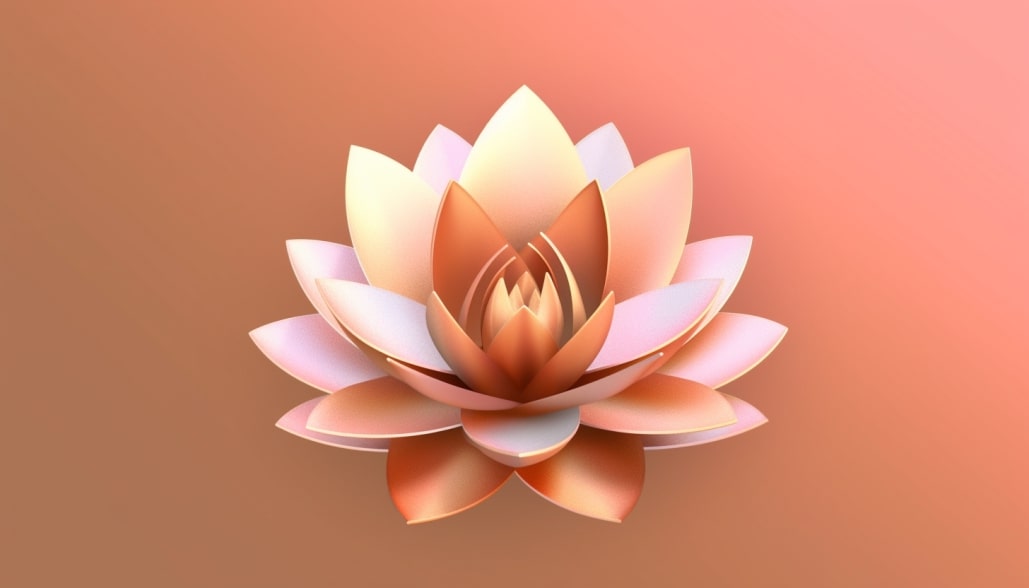Discovering Anxiety & Depression Relief Through Massage
In the heart of Canada, where the pace of life often leaves individuals feeling stressed and overburdened, people are increasingly seeking out holistic approaches to health and wellness. One such method, massage therapy, has been making waves not just for its undeniable physical benefits but also its ability to provide relief for those suffering from anxiety and depression. This article dives into the intriguing connection between massage therapy and mental health, shedding light on how this age-old practice could offer a soothing touch to the modern mind. Whether you’re someone who’s battling these conditions or simply someone interested in understanding the healing potential of touch, this guide is here to navigate you through the serenity of massage therapy.
Understanding Anxiety and Depression: An Introduction
Anxiety and depression are complex mental health conditions that have been at the forefront of public health concerns in Canada. Statistics Canada estimates that about one in three Canadians will experience an anxiety disorder, depression, or both at some point in their lives. These conditions are more than just occasional feelings of sadness or worry; they can significantly interfere with a person’s daily activities and overall quality of life.
Depression is characterized by feelings of hopelessness, loss of interest in activities once enjoyed, and changes in appetite, sleep, and energy levels. Anxiety, on the other hand, manifests as persistent, excessive worry and fear about everyday situations, often accompanied by physical symptoms such as a fast heart rate and rapid breathing. Despite their debilitating nature, these conditions are treatable, and many people have found success with various therapeutic interventions, including medication, psychotherapy, and complementary therapies like massage.
The Power of Touch: An Overview of Massage Therapy
Massage therapy, as defined by the College of Massage Therapists of British Columbia, is a clinically-oriented healthcare option that involves manipulating the soft tissues of the body, including muscles, connective tissues, tendons, ligaments, and joints, to alleviate discomfort and improve physical function. But beyond its physical benefits, massage therapy has been recognized for its ability to soothe the mind and ease emotional distress.
The practice of massage therapy is far from a new phenomenon. In fact, the art of therapeutic touch has been part of human culture for thousands of years, with early evidence found in ancient civilizations from China to Egypt to Greece. In Canada, massage therapy has been a regulated health profession since the early 20th century, and today, it is widely accepted and utilized by individuals seeking both physical and mental well-being.
Key takeaway: Massage therapy goes beyond relieving muscle tension and pain. It is a holistic approach that can enhance both physical and mental health.
Linking Massage and Mental Health
Understanding the connection between massage therapy and mental health involves delving into the fascinating concept of the mind-body connection. The idea is that our mental and emotional state can impact our physical health, and vice versa. This connection is evident in the physical symptoms often associated with anxiety and depression, such as headaches, stomach issues, and muscle tension.
So how does massage therapy fit into this picture? Research suggests that massage can reduce levels of the stress hormone cortisol, while boosting “feel-good” hormones like serotonin and dopamine. A review of multiple studies found that massage therapy was significantly associated with reduced depressive symptoms, making it a potential complementary treatment for depression.
Massage therapy offers benefits for a number of mental health conditions, including depression, anxiety, and stress. Research also shows that massage can help people coping with seasonal affective disorder. Additionally, massage has the ability to lower blood pressure, slow the heart rate, and promote deep relaxation, all of which can alleviate anxiety symptoms.
Key takeaway: Massage therapy may offer mental health benefits by promoting relaxation, reducing stress hormones, and boosting mood-enhancing hormones.
Understanding Different Massage Techniques for Anxiety and Depression
The world of massage therapy is as diverse as the individuals it serves. A variety of techniques have shown promise for anxiety and depression, each with its unique approach and benefits.
| Modality | Benefits |
Swedish Massage |
Also known as relaxation massage, Swedish massage is characterized by long, flowing strokes, gentle kneading, and circular movements on the superficial layers of the muscles. This technique is excellent for promoting relaxation, improving circulation, and reducing physical and emotional tension. |
Deep Tissue Massage |
This technique delves deeper into the muscle and connective tissue to release chronic tension and pain. While it can be more intense than Swedish massage, deep tissue massage can have profound effects on both physical pain and emotional well-being. |
Sports Massage |
Sports massage is a type of massage therapy that is focused and systematic, targeting muscles that are used in a specific sport. It uses various techniques to decrease muscle tension, improve flexibility, and enhance athletic performance. |
Myofascial Release Massage |
Myofascial release is a type of physical therapy that involves applying gentle sustained pressure into the myofascial connective tissue restrictions to eliminate pain and restore motion. |
Key takeaway: Different massage techniques offer unique benefits. Speak with your therapist about which approach may be best for your specific needs and goals.
Professional Massage Therapists in Canada: What to Look For
Finding a professional massage therapist who specializes in anxiety and depression can be a daunting task, especially with the variety of massage techniques available. Here are some things to consider in your search:
Certification and Specialization: In Canada, massage therapists must be registered with a provincial regulatory body to practice. Ensure your chosen therapist has this registration and inquire about their experience and training in mental health.
Approaches to Treating Anxiety and Depression: As we’ve seen, different massage techniques can be beneficial for anxiety and depression. Discuss your symptoms with your therapist to determine the most suitable approach for you.
Key takeaway: Finding the right therapist is an important step towards successful massage therapy. Do your research, ask questions, and trust your intuition.
The Legal Landscape of Massage Therapy in British Columbia
Understanding the legal framework of massage therapy in Canada is essential when seeking treatment. Here are a few facts about Massage Therapy regulation in BC.
- Massage therapy has been a regulated profession under British Columbia legislation since 1946
- Registered Massage Therapists (RMTs) in British Columbia are autonomous, self-regulating professionals. The majority of their practices are in private clinics, but they also work in hospitals, rehabilitation centers, and sports clinics.
- RMTs in BC must register with the College of Massage Therapists of British Columbia (CMTBC). There are three levels of legislation governing MT in the province: 1) the Health Professions Act of BC, 2) The Massage Therapists Regulation and 3) the By laws of the College of Massage Therapists in BC
- In BC, membership requires a minimum of 3000 hours, or approximately three years of training, making the approximately 2600 RMTs in BC some of the best-trained massage therapists in the world
- The CMTBC sets and enforces standards of practice for RMTs in BC. The standards of practice are based on the Health Professions Act, the Massage Therapists Regulation, and the Bylaws of the College of Massage Therapists of British Columbia
- RMTs in BC are satisfied with their careers and feel that massage therapy is becoming more widely accepted as a viable health care option in Canada.
Key takeaway: Understanding the legal landscape of massage therapy in Canada is crucial for ensuring you receive safe and competent care. Always verify your therapist’s credentials and registration status before beginning treatment.
Your Wellness Journey: Choosing the Right Massage Therapy for You
Choosing the right massage therapy for your mental wellness journey involves a careful consideration of your needs and goals. Here’s what to expect:
- Consultation and Treatment Plan: Your massage therapist will likely begin with a comprehensive consultation to understand your health history and goals for therapy. This information will inform your personalized treatment plan, which will outline the type of massage, frequency of sessions, and any complementary therapies that might be beneficial.
- Aftercare and Maintenance: Massage therapy is often most effective when incorporated into a regular self-care routine. Your therapist may suggest stretches or exercises to do at home, along with recommendations for maintaining mental well-being between sessions.
Key takeaway: Your wellness journey is unique, and so too should be your massage therapy plan. Work closely with your therapist to design a plan that caters to your individual needs and goals.
Massage Therapy and Mental Health: A Path to Healing
Choosing massage therapy as a part of your mental health management strategy is a deeply personal decision. It offers an opportunity to take a holistic approach to your health, merging the physical and the mental into a pathway of healing. It’s essential, however, to understand that massage therapy is not a cure-all. Instead, it should be seen as a complementary method — a tool that can work in synergy with other treatments like medication and psychotherapy to help manage anxiety and depression.
The power of touch in human wellness cannot be understated. As we’ve explored in this guide, this primal connection can go a long way in managing mental health conditions like anxiety and depression. Massage therapy can help you tap into this inherent human need for touch and transform it into a therapeutic journey, fostering a deep sense of relaxation, reducing stress, and promoting overall well-being.
Remember, your journey towards wellness is uniquely your own, and what works for one person might not work for another. So, explore, be open to different possibilities, and most importantly, listen to your body and your mind. And as always, seek professional advice before starting any new treatment.
Embracing a New Lease on Life: Your Next Steps
Now that we’ve journeyed through the world of massage therapy as a natural remedy for anxiety and depression, you are equipped with the knowledge to take the next steps in your wellness journey. Whether you’re exploring massage therapy for the first time, or are a seasoned participant, remember this is a journey and not a race. Take the time to find the right therapist, discuss your needs and goals, and embark on this path to healing and wellness.
FAQs
Can massage therapy replace medications for anxiety and depression?
No, massage therapy is a complementary treatment and should not replace traditional therapies like medication and psychotherapy. Always consult with a healthcare provider for treatment options best suited to your health needs.
How often should I get a massage for anxiety and depression?
The frequency of massage therapy can vary depending on individual needs and goals. Discuss your treatment plan with your massage therapist to determine the best frequency for you.
Is massage therapy covered by Canadian health insurance?
Some health insurance plans in Canada do cover massage therapy, but it varies by provider and plan. Check with your insurance provider to confirm coverage.
What should I do if I feel uncomfortable during a massage?
Communication is key during a massage session. If you feel uncomfortable at any point, it’s important to let your therapist know immediately so they can adjust the technique or pressure.
Can I do self-massage to help with my anxiety and depression?
Yes, self-massage techniques can be beneficial and can serve as a good supplement to professional massage therapy. However, these should not replace treatment from a trained professional.
Sources
- Public. “About Mental Illness – Canada.ca.” Canada.ca, 2016, www.canada.ca/en/public-health/services/about-mental-illness.html. Accessed 12 June 2023.
- “Home – September 2022 – College of Massage Therapists of British Columbia.” College of Massage Therapists of British Columbia, 7 Oct. 2022, www.cmtbc.ca/. Accessed 12 June 2023.
- keillor.jon. “Mayo Clinic Explores: The Role of Massage Therapy for Mental Health – Mayo Clinic Press.” Mayo Clinic Press, 2 Nov. 2021, mcpress.mayoclinic.org/mental-health/mayo-clinic-explores-the-role-of-massage-therapy-for-mental-health/. Accessed 12 June 2023.
- Field, Tiffany. Massage Therapy Research Review. no. 4, Nov. 2014, pp. 224–29, https://doi.org/10.1016/j.ctcp.2014.07.002. Accessed 12 June 2023.
- “Massage Therapy – Province of British Columbia.” Gov.bc.ca, 2013, www2.gov.bc.ca/gov/content/health/practitioner-professional-resources/professional-regulation/massage-therapy. Accessed 12 June 2023.
- “Law & Standards – College of Massage Therapists of British Columbia.” College of Massage Therapists of British Columbia, 25 Mar. 2022, www.cmtbc.ca/law-standards/. Accessed 12 June 2023.
- Shroff, Farah M., and Inderjeet S. Sahota. The Perspectives of Educators, Regulators and Funders of Massage Therapy on the State of the Profession in British Columbia, Canada. Jan. 2013, https://doi.org/10.1186/2045-709x-21-2. Accessed 12 June 2023.

Mark Bentz is a highly experienced Registered Massage Therapist (RMT) with over two decades of practice. Despite having only two percent of his vision due to a progressive retinal degenerative condition, Mark’s unique perspective and heightened senses allow him to deliver a powerful and intuitive massage therapy experience. With a background in Human Kinetics and extensive training at the West Coast College of Massage Therapy (WCCMT), Mark is adept at identifying and releasing primary restrictions in the body, enabling the alleviation of secondary symptoms. Mark’s commitment to the field is further demonstrated by his active involvement with Provincial, National, and International massage therapy organizations. You can request a session with Mark by contacting Everest Therapeutics.








